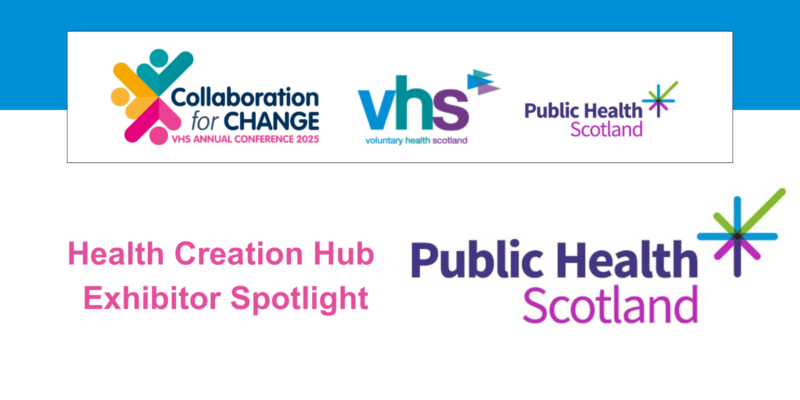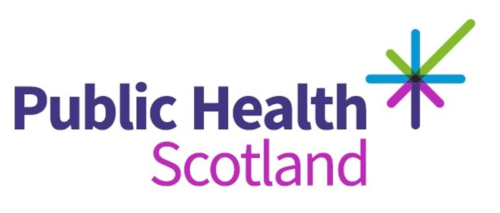
Community food initiatives are uniquely placed to support multiple health outcomes and reach marginalised groups across Scotland. Alison Owens, Health Improvement Manager, discusses Public Health Scotland’s (PHS) engagement with the community food sector and the opportunities involving them in local decision-making brings —in particular the development of Good Food Nation plans.
Community food initiatives are positively impacting lives across Scotland. They range from large, well-established organisations delivering food-focused services, to small grassroots groups running local activities such as community growing, cooking sessions and cafés. While some focus solely on food, others embed food activities within their broader community work, such as youth centres. Regardless of their make-up or size, they all contribute to the environmental, social and economic well-being of our communities.
Prevention approach
Community food initiatives are often located in areas most affected by poverty and inequality. Recent data show us that:
- 1 in 7 Scottish adults are worrying about running out of food (Scottish Health Survey 2022)
- Low-income households across the UK need to spend 45% of their disposable income to eat healthily, compared to just 11% for the wealthiest (Food Foundation, 2025)
While community food initiatives often work to help people access healthy, affordable food, their impact goes much further. They support health in many ways, such as:
- tackling loneliness and encouraging connection, e.g. via shared meals or growing projects
- sparking interest and knowledge in healthy food through engagement and learning opportunities
- offering accredited training, employability support and creating local jobs
- linking people with financial advice or other preventative services
- advocating on behalf of communities, to influence and inform policy
- contributing to sustainable local food systems e.g. via work on growing, waste, and championing local food.
This kind of community work is uniquely placed to support a prevention approach and can often reach marginalised groups more easily than public services. We see this recognised in the Population Health Framework, as it outlines a shift towards prevention – with action from every sector required to tackle inequalities and transform health outcomes.
Learning from the sector
PHS’s Community Food and Health (Scotland) (CFHS) programme aims to support and strengthen community food work across Scotland. Last year, we engaged with stakeholders via four regional events and online interviews. Thanks to members of our National Community Food Reference Group: Community Food Initiatives North East, Edinburgh Community Food, Lanarkshire Community Food & Health Partnership and Glasgow Community Food Network for organising and leading events, and to our stakeholders for taking part in interviews.
During our engagement activities, we heard powerful stories from community food initiatives, highlighting the dedication of their experienced workforce, and their ability to build strong local partnerships. Stakeholders spoke about building trusted, lasting relationships with their communities and about their strong commitment to learning, sharing practice, and working collaboratively with others.
However, some of the challenges highlighted included:
- A lack of long-term, unrestricted or core funding – leading to excessive time applying for funding, competition for funds and difficulties recruiting and retaining staff
- Difficulties accessing affordable land, buildings or equipment to deliver food-related activities
- Difficulties sourcing healthy food, especially when reliant on surplus or donated food
- Shame or stigma preventing people from engaging with services
- A desire for greater coordination both locally and nationally
- A desire to shape and influence local services and policies, however, organisations are often limited by time and resources
- A need for ongoing support for staff and volunteers— offering training in mandatory areas such as food hygiene, as well as training in areas such as cash first or nutrition.
Opportunities in the Good Food Nation plans
While the challenges described aren’t new, the Good Food Nation (Scotland) Act 2022 requires Scottish Ministers, local authorities and NHS boards to develop Good Food Nation plans; creating an opportunity to work with the sector to tackle shared issues and address barriers to progress. As recognised in the supporting sector summary of the Population Health Framework, the community and voluntary sectors should be recognised as equal partners and included in decision-making processes.
Key opportunities include:
- Meaningfully involving community and voluntary sector in policymaking and planning to reflect local needs
- Offering fair funding models to improve sustainability
- Strengthening partnership working to unlock additional resources for the sector.
What’s next
Looking ahead, we hope to see community food initiatives actively involved in shaping local food plans—drawing on their experience, creativity, and commitment to improving community outcomes. We know they have a deep understanding of local issues, and are well placed to lead innovative, community-led approaches that strengthen food cultures, social connections, and support for marginalised groups.
PHS will continue to work with and advocate for the community food sector. Over the coming months, we’ll host peer engagement sessions to share learning, explore new ways to connect community organisations to local policy, and continue building capacity and knowledge across Scotland.
Read our community food case studies
Sign up to our community food e-bulletin
Find out more about Scotland’s Population Health Framework – gov.scot and the supporting community and voluntary sector summary
Find out more about the Good Food Nation (Scotland) Act 2022
Read the Scottish Health Survey 2022 Main Report Volume 1
Read The Broken Plate 2025 | Food Foundation
 VHS is pleased to have Public Health Scotland as our collaboration partner for the VHS Annual Conference ‘Collaboration for Change’ on October 28th, 2025. Make sure you pop by their stand at our Health Creation Hub.
VHS is pleased to have Public Health Scotland as our collaboration partner for the VHS Annual Conference ‘Collaboration for Change’ on October 28th, 2025. Make sure you pop by their stand at our Health Creation Hub.
